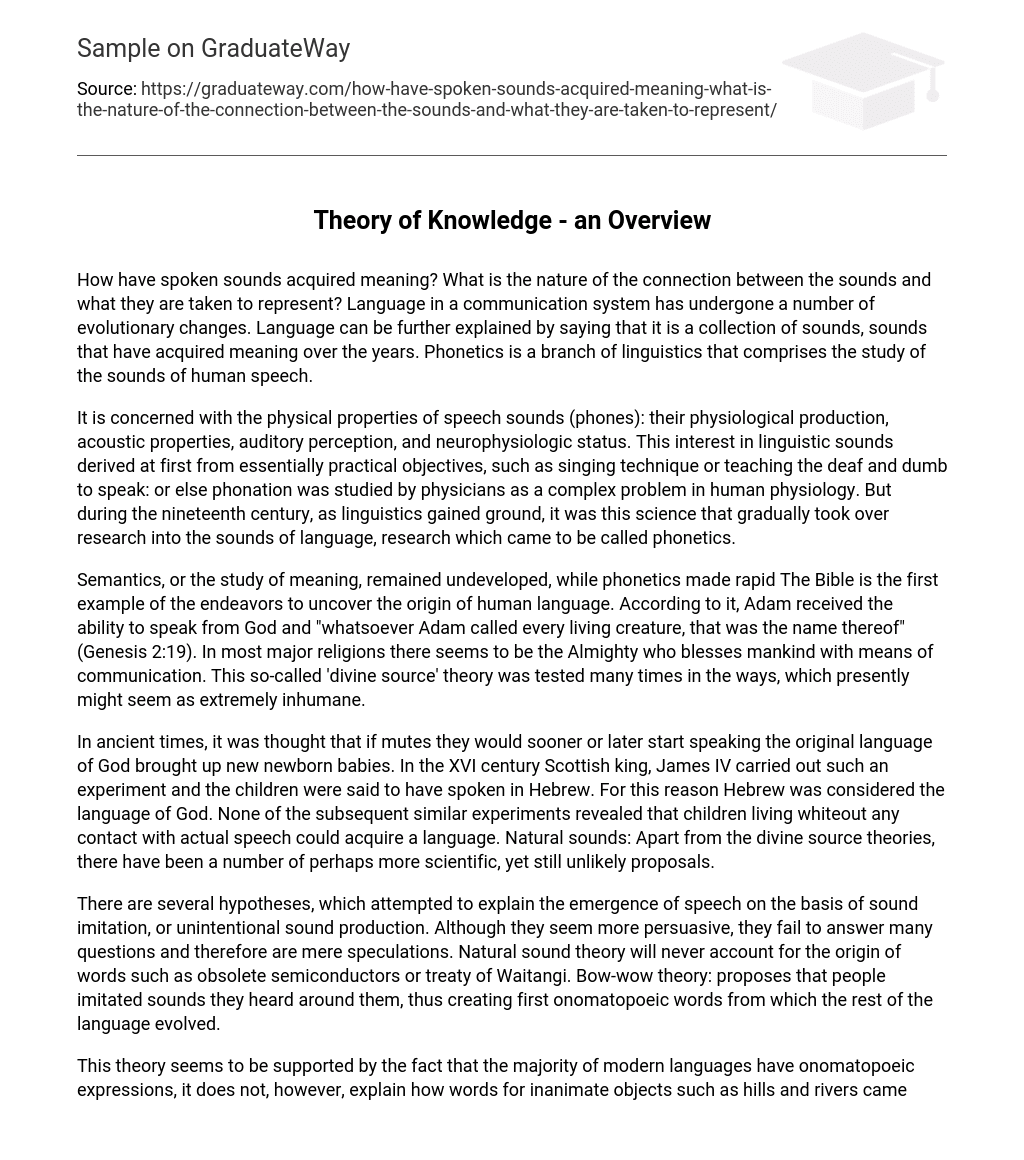How have spoken sounds acquired meaning? What is the nature of the connection between the sounds and what they are taken to represent? Language in a communication system has undergone a number of evolutionary changes. Language can be further explained by saying that it is a collection of sounds, sounds that have acquired meaning over the years. Phonetics is a branch of linguistics that comprises the study of the sounds of human speech.
It is concerned with the physical properties of speech sounds (phones): their physiological production, acoustic properties, auditory perception, and neurophysiologic status. This interest in linguistic sounds derived at first from essentially practical objectives, such as singing technique or teaching the deaf and dumb to speak: or else phonation was studied by physicians as a complex problem in human physiology. But during the nineteenth century, as linguistics gained ground, it was this science that gradually took over research into the sounds of language, research which came to be called phonetics.
Semantics, or the study of meaning, remained undeveloped, while phonetics made rapid The Bible is the first example of the endeavors to uncover the origin of human language. According to it, Adam received the ability to speak from God and “whatsoever Adam called every living creature, that was the name thereof” (Genesis 2:19). In most major religions there seems to be the Almighty who blesses mankind with means of communication. This so-called ‘divine source’ theory was tested many times in the ways, which presently might seem as extremely inhumane.
In ancient times, it was thought that if mutes they would sooner or later start speaking the original language of God brought up new newborn babies. In the XVI century Scottish king, James IV carried out such an experiment and the children were said to have spoken in Hebrew. For this reason Hebrew was considered the language of God. None of the subsequent similar experiments revealed that children living whiteout any contact with actual speech could acquire a language. Natural sounds: Apart from the divine source theories, there have been a number of perhaps more scientific, yet still unlikely proposals.
There are several hypotheses, which attempted to explain the emergence of speech on the basis of sound imitation, or unintentional sound production. Although they seem more persuasive, they fail to answer many questions and therefore are mere speculations. Natural sound theory will never account for the origin of words such as obsolete semiconductors or treaty of Waitangi. Bow-wow theory: proposes that people imitated sounds they heard around them, thus creating first onomatopoeic words from which the rest of the language evolved.
This theory seems to be supported by the fact that the majority of modern languages have onomatopoeic expressions, it does not, however, explain how words for inanimate objects such as hills and rivers came to exist. Yo-heave-ho theory: on the other hand proposes that human language is a result of the first human sounds made by people taking part in some physical effort. At the dawn of civilization when people worked in groups the grunts and groans they made while performing difficult manual tasks enabled them to develop a way of communicating which with time evolved into more elaborate form of conveying meaning.
This idea emphasizes a very important notion, namely social context crucial for the development and the use of language. The oral-gesture source: This theory goes further back in time when people used physical gestures to communicate their ideas. It is thought that over time they started to use not only their hands, but also movement of the mouth, lips and tongue that subsequently developed into speech, as we know it.
All of these theories do not explicitly explain how language originated, but linguists and anthropologists could agree on when and why that was possible. It is now clear that our ancestors, Neanderthals, were only able to produce few sounds, as it could be examined from their remains dating back to about 60,000 BC. The reconstructed Neanderthal skeleton dating about 35,000 years resembles the modern humans being, which indicates the approximate time of when the oral communication begun





